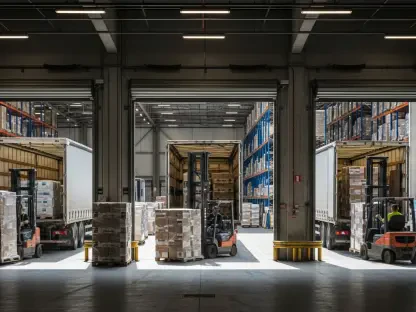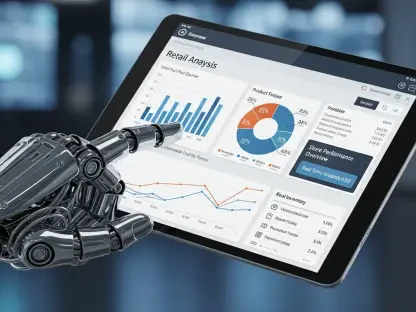The fleet management industry is undergoing a significant transformation, driven by advancements in e-commerce and artificial intelligence (AI). As online shopping continues to surge, businesses are increasingly integrating technology into their logistics operations to meet rising consumer demands. This shift is particularly evident in last-mile delivery, which has become a crucial factor in customer satisfaction. Last-mile delivery refers to the final step of the delivery process when the package reaches the customer’s doorstep. Companies like Circuit are leading the way in utilizing technology to enhance delivery processes, making them more timely and efficient. By optimizing various logistical aspects, these companies are not only improving their operational efficiency but also setting new standards in the industry.
The Impact of AI on Fleet Management
AI’s influence on fleet management is profound, enabling smarter decision-making and improving operational efficiency. By integrating AI, businesses can achieve optimal route planning, which reduces delivery times and fuel consumption. This is particularly important as fuel costs continue to rise and as companies aim to reduce their carbon footprint. Predictive maintenance capabilities powered by AI help fleets anticipate mechanical issues, thereby minimizing downtime and extending the lifespan of vehicles. Additionally, AI contributes significantly to enhanced safety by providing real-time data analytics that can prevent accidents and improve driver performance.
Incorporating AI into fleet operations offers tangible benefits for businesses aiming to refine their logistics strategies. AI-driven tools streamline communication between fleet managers and drivers, optimizing resource utilization. For instance, Circuit uses AI to optimize delivery routes, ensuring each journey is as efficient as possible. By continually analyzing real-time data, AI can adjust routes dynamically in response to traffic conditions, road closures, or weather changes. This technological advantage not only reduces costs but also improves service quality, thereby increasing customer satisfaction. As a result, businesses that leverage AI in their fleet management are better equipped to meet customer expectations and maintain a competitive edge in the market.
E-Commerce and the Changing Logistics Landscape
E-commerce has drastically changed the logistics landscape, prompting businesses to rethink their delivery strategies. With the growing popularity of online shopping, consumers now expect faster shipping and greater transparency throughout the delivery process. This shift in consumer behavior necessitates robust fleet management systems capable of handling a high volume of orders efficiently. Consumers are no longer content with vague delivery windows; they want real-time updates on their packages and the ability to track their orders from the moment they make a purchase until it arrives at their door.
To meet these expectations, companies must invest in advanced technologies that streamline operations and enhance the customer experience. Circuit tailors its software solutions to address the unique challenges posed by e-commerce demands. For instance, by offering tools that optimize delivery routes and accurately track packages, Circuit ensures businesses can adhere to delivery timelines without compromising on service quality. Moreover, integrating technology in fleet management not only addresses current needs but also prepares businesses for future e-commerce trends. As digital marketplaces expand globally, an agile logistics system is crucial for sustaining growth. Companies focusing on innovative delivery models will be better positioned to succeed in a competitive market, ensuring both efficiency and customer satisfaction.
Innovations in Last-Mile Delivery
Last-mile delivery presents significant challenges for businesses striving to meet customer expectations, especially in urban areas. Urban congestion often leads to delayed deliveries, which frustrate both consumers and companies. Moreover, evolving customer demands for faster shipping options add complexity to logistics operations. As customers become more accustomed to rapid delivery options from major e-commerce players like Amazon, even small delays can impact customer satisfaction and brand loyalty.
To address these challenges, innovations such as drones and autonomous vehicles are being explored for last-mile delivery optimization. These technologies offer promising alternatives that can potentially reduce congestion and enhance delivery efficiency. Drones, for instance, can bypass road traffic altogether and deliver packages directly to customers’ doorsteps. Autonomous vehicles can operate around the clock, making deliveries at times when traffic is lighter. However, widespread implementation requires overcoming regulatory barriers and addressing safety concerns. Regulatory frameworks for these technologies are still evolving, and companies need to navigate a complex landscape of local, state, and federal regulations.
Despite these challenges, platforms like Circuit play a vital role in refining last-mile delivery processes through intelligent route optimization algorithms. By leveraging real-time data analytics, Circuit helps businesses anticipate potential delays and adjust routes proactively. These proactive measures ensure timely deliveries, minimizing operational disruptions. By continuously improving its algorithms and incorporating new data sources, Circuit can maintain high levels of service even as conditions change. This approach not only meets current challenges but also prepares businesses for future developments in last-mile delivery technologies.
The Future of Fleet Management
E-commerce has fundamentally reshaped the logistics industry, compelling businesses to reconsider their delivery strategies. As online shopping continues to gain traction, consumers demand quicker shipping and more transparency in the delivery process. This change in consumer expectations requires robust fleet management systems adept at handling a high volume of orders efficiently. Today’s consumers aren’t satisfied with vague delivery windows; they expect real-time updates on their packages and the ability to track their orders from purchase to delivery.
To fulfill these demands, companies need to invest in cutting-edge technologies that streamline operations and enhance the customer experience. Circuit customizes its software solutions to tackle the unique challenges e-commerce presents. By offering tools that optimize delivery routes and provide precise package tracking, Circuit ensures businesses meet delivery deadlines without sacrificing service quality. Furthermore, integrating technology in fleet management addresses current needs and prepares businesses for future e-commerce trends. As digital marketplaces grow globally, a flexible logistics system is essential for continued growth. Companies adopting innovative delivery models will thrive in a competitive market, ensuring efficiency and customer satisfaction.









